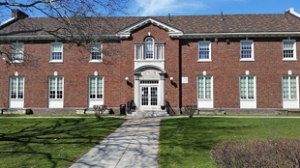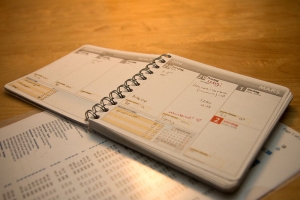Tools for Trustees
For New Trustees
- Contact OCPL Administration to request a system orientation for new trustees or a refresher for current board members.
 2022 OCPL Member Services Directory.pdf
2022 OCPL Member Services Directory.pdf- Handbook for Library Trustees of New York State by Jerry Nichols
- “What Every Trustee Should Know,” by Gerald Nichols [NYS Division of Library Development – webinar]
- Statement on the Governance Role of a Trustee or Board Member [NYS Board of Regents]
- Types of Public Libraries [NYS Division of Library Development]
- Public Library Systems [NYS Division of Library Development]
- Helpful Information for Meeting Minimum Public Library Standards [NYS Division of Library Development]
- Library Support Organizations
- New York Library Association
- New Yorkers for Better Libraries PAC
- United for Libraries [Association of Library Trustees, Advocates, Friends and Foundations, American Library Association]
Trustee Training
Beginning January 1, 2023, each trustee, elected or appointed, of a public library, association library or Indian Library will be required to complete a minimum of two hours of trustee education annually (Education Law 260-d added by Chapter 468 of the Laws of 2021).
To help all trustees understand and meet the new trustee education requirements, Lauren Moore, Assistant Commissioner for Libraries and State Librarian established a joint New York State Library (NYSL) and Public Library System Director’s Organization (PULISDO) Trustee Education Committee. She asked the Committee to create a Frequently Asked Questions document and other supporting materials to help trustees and library directors understand the new law and the new requirements.
The FAQs and other materials are now available on the NYSL Division of Library Development webpage in the New and Updated section at https://www.nysl.nysed.gov/libdev/
Duties and Responsibilities for Trustees
“Trustee/board members owe allegiance to the institution and must act in good faith with the best interest of the institution in mind. The conduct of a trustee/board member must, at all times, further the institution’s goals…”
-Statement on the Governance Role of a Trustee or Board Member, NYS Board of Regents
- Trustee Duties & Responsibilities [Handbook for Library Trustees in New York State]
- Checklist for Effective Library Trustees
- Oaths of Office [NYS Division of Library Development]
- Public Library Trustees Ethics Statement [American Library Association]
- Statement on the Governance Role of a Trustee or Board Member [NYS Board of Regents]
- Public Officers Law [NYS Division of Library Development]
- Who runs the library? [Handbook for New Public Library Directors in New York State]
The Library Board:
From the Handbook for Library Trustees, pg 22, 2018 ed.:
Public libraries are required by the Regulations of Commissioner of Education of New York State (Education Department Regulations [8 NYCRR] § 90.2) to operate under written bylaws. Bylaws are "the set of rules adopted by an organization defining its structure and governing its functions." (Sturgis, The Standard Handbook of Parliamentary Procedure; third edition, new and revised, p. 257).
Bylaws may not conflict with federal or state law and regulations; nor the library’s charter. Such law and regulation is the highest authority governing the library's affairs.
A board will probably find it appropriate to tailor its bylaws to local needs and situations. The bylaws should be reviewed periodically and amended when necessary to maintain flexibility and relevance. Nonetheless, bylaws must conform to the library’s charter of incorporation and, if applicable, enabling legislation. All bylaws should be updated every five years and posted on the library’s website. They should include the following provisions:
Continue Reading
- Sample Bylaws [NYS Division of Library Development]
- Oaths of Office [NYS Division of Library Development]
- Code of Ethics Statement [American Library Association]
- The Role of Board Presidents [MHLS Board Leadership Forum with Dennis A. Barnett]
- Sample Trustee Job Description [Geneva Public Library]
Board Meetings:
From the Handbook for Library Trustees, pg 27, 2018 ed.:
Library board meetings are conducted under the rules set forth in the library’s bylaws, which must comply with the library’s charter, state and federal law and regulation. In order for all trustees to be properly prepared for the meeting, a packet should be mailed or e-mailed to them no less than one week before the meeting date. The packet should include the meeting agenda, minutes of the previous meeting, financial reports, the library director's report, the schedule of bills to be paid, proposed personnel actions and committee reports. Background information on the issues before the board should be distributed as well as any other documents that pertain to the business of the meeting. All trustees are expected to come prepared to participate fully in meeting discussions and actions and to be familiar with the activities of the committees to which they are assigned. Using the talents and skills of every board member creates a more cooperative, congenial and productive board.
Regular attendance at board meetings is essential. The Board President should be notified in advance if attendance is not possible. A trustee who misses meetings frequently may not completely understand the issues at hand and valuable meeting time can be lost bringing that trustee back up to speed.
Continue Reading
- NYS Open Meetings Law [NYS Committee on Open Government]
- OML Advisory Opinions
- Effective Board Meetings & Trustee Participation [Wisconsin Department of Public Instruction]
- Effective Meetings for Library Board of Trustees [United for Libraries, American Library Association]
- Robert’s Rules of Order Motions Chart
- “How to Write Meeting Minutes” [meetingtomorrow.com]
Laws and Regulations:
From the Handbook for Library Trustees, pg 7, 2018 ed.:
As New York State Education Corporations libraries are subject to a wide range of federal, state and local laws, rules and regulations. While trustees cannot be expected to understand all the details of every pertinent law, they should be familiar enough with the major legal issues to be assured that their library is always in compliance. Boards are strongly advised to solicit the assistance of their public library system and seek the advice of legal counsel well versed in education and municipal law. It is important however, for every trustee to understand the legal foundation of their library and the extent and limitations of the board of trustees’ authority.
Continue Reading
- Helpful Information for Meeting Minimum Public Library Standards [NYS Division of Library Development]
- Excerpts from New York State Law and Regulations of the Commissioner of Education pertaining to Libraries, Library Systems, Trustees and Librarians
- Public Library Law in New York State by Robert Allan Carter
- New Library Laws [Library Legislation in New York State]
- Commissioner’s Decisions [NYS Education Department]
- Open Meetings Law Advisory Opinions [NYS Committee on Open Government]
- Freedom of Information Law Advisory Opinions [NYS Committee on Open Government]
- Public Officers Law [NYS Division of Library Development]
- Americans with Disabilities Act (ADA) Technical Assistance
- US Department of Labor
- NYS Department of Labor
- USA Patriot Act [American Library Association]
- The Children’s Internet Protection Act (CIPA) [American Library Association]
Policies:
From the Handbook for Library Trustees, pg 38, 2018 ed.:
Policymaking is perhaps the most difficult part of a trustee’s job, requiring an open mind, a thoughtful study of the issues involved and a deep understanding of the library’s mission and of the community it serves. In addition, clearly reasoned and written, up-to-date policies provide the Library with critical legal protection.
Policies are the rules and the principles that guide the operation and the use of the library. They are required by Education Department Regulations (8 NYCRR) § 90.2 as part of the public library minimum standards and must be reviewed every five years and posted on the library’s website. The library board is responsible for creating such policies, reviewing and revising them, and ultimately enforcing them with the assistance of the library staff. Policies must be clearly written and understandable.
Continue Reading
- LTA Policy Database [Library Trustee Association of NYS]
- Helpful Information for Meeting NYS Public Library Minimum Standards: #4 Written Policies
- New York Libraries Trustees Online: Library Policies [Use guest login]
Planning & Evaluation:
From the Handbook for Library Trustees, pg 59, 2018 ed.:
Every public and association library in New York is required to have a written long-range plan of service and to make it easily accessible by the public; including on the library website. (Education Department Regulations (8 NYCRR) § 90.2) There are many excellent publications on planning. Some, such as the Public Library Association's Planning for Results series, are specifically library oriented.
The conscious decision to engage in planning is far more important than the planning tool used. Though planning may be required, it is simply a smart way to inform decisions about budgeting, personnel, capital improvements, library services and community involvement.
Continue Reading
- Helpful Information in Meeting Public Library Standard #2: Long-Range Plan [Division of Library Development]
- Simply Strategic: Creating a Strategic Plan for your Library [Pioneer Library System]
- Transforming Libraries: Turning Outwards Resources for Libraries [American Library Association]
- Basics of Conducting Focus Groups by Carter McNamara
- Helpful Information for Meeting Public Library Standard #6: Evaluating Effectiveness [Division of Library Development]
- PLA Performance Measurement [Project Outcome]
- Outcome Based Evaluation Webography [Institute of Museum and Library Science]
- SurveyMonkey: Free online survey software & questionnaire tool
Budgets & Finance:
From the Handbook for Library Trustees, pg 50, 2018 ed. :
Public library boards are legally responsible for the library's finances and financial management. As custodians of public funds, trustees must be accountable in their management of the library's money.
Continue Reading
- Funding
- Types of Public Libraries [NYS Division of Library Development]
- “Increasing Autonomy: Rechartering Your Public Library” by Ellen M. Bach & Robert T. Schofield, Whiteman Osterman & Hanna LLP [NYS Division of Library Development]
- Creating Public Library Districts in New York State: A “How-To” Guide [NYS Division of Library Development]
- School Districts and Taxes For Public and Association Libraries: How the Partnership Works [NYS Division of Library Development]
- Municipal Ballot/”414 Vote” [NYS Division of Library Development]
- Budgeting
- Public Library Expense Checklist [NYS Division of Library Development]
- Helpful Information for Meeting NYS Public Library Minimum Standards: #5 Written Budget [NYS Division of Library Development]
- Library Salaries Information [American Library Association]
- Minimum Wages [NYS Department of Labor]
- Fiscal Oversight
- Internal Financial Controls [Mid-Hudson Library System]
- Internal Controls and Financial Accountability for Not-for-Profit Boards [NYS Office of the Attorney General]
- Local Government Management Guides [NYS Office of the State Comptroller]
- Accounting & Reporting Manual
- Fiscal Oversight Responsibilities of the Governing Board
- Improving the Effectiveness of Your Claims Auditing Process
- The Practice of Internal Controls
- Investing and Protecting Public Funds
- Reserve Funds
- Seeking Competition in Procurement
- Records Retention [NYS Archives]
Intellectual Freedom, Censorship & Privacy:
From the Handbook for Library Trustees, pg 77, 2018 ed:
Public libraries play a unique role in the support and preservation of democracy by providing open, non-judgmental institutions where individuals can pursue their own interests. To the extent that their budgets permit, libraries attempt to collect materials and information that represent varying points of view on controversial topics. But as the repositories of our culture, both the good and the bad, libraries sometimes contain information or ideas that are controversial or threatening to some people.
Continue Reading
- The First Amendment of the Bill of Rights to the United States Constitution [Cornell University Law School, Legal Information Institute]
- Library Bill of Rights [American Library Association]
- Why Privacy and Confidentiality Are Important [American Library Association]
- Privacy Toolkit [American Library Association]
- Questions and Answers on Privacy and Confidentiality [American Library Association]
- Freedom to Read Statement [American Library Association]
- Freedom to View Statement [American Library Association]
- Responding to Law Enforcement Inquiries [Mid-Hudson Library System]
Facilities:
From the Handbook for Library Trustees, pg 65, 2018 ed.:
Education Department Regulations (8 NYCRR) § 90.2(a)(8) requires the board to "maintain a facility which meets community needs." While various formulas exist for determining the appropriate size of a library, the final determination of adequacy rests in the hands of the trustees. Square footage is only one factor in deciding whether a library meets the community's expectations. Location, internal arrangement, accessibility for all patrons, environmental quality, and intangibles such as ambiance all contribute to the overall adequacy of a library building.
Continue Reading
- Operations & Maintenance
- Maintenance Checklist for Public Libraries [Kansas State Library]
- Sustainable O&M Practices [Whole Building Design Guide]
- Disaster Plan and Recovery for Libraries: Writing a Disaster Plan [South Central Regional Council]
- LEED Reference Guide for Green Building Operations and Maintenance with Global ACPs
- Accessibility
- ADA Fact Sheets [ADA National Network]
- Library Services for People with Disabilities Policy [American Library Association, The Association of Specialized and Cooperative Library Agencies (ASCLA)]
- Space Planning, Renovation & Construction
- New York State Aid for Library Construction [Division of Library Development]
- Transforming Library Spaces for Community Engagement [Webjunction]
Personnel:
From the Handbook for Library Trustees, pg 43, 2018 ed.:
The management and operation of a library are accomplished through a partnership among trustees, the library director, staff and volunteers.
As the library’s governing body (and the entity with ultimate accountability for the institution), the board of trustees has the responsibility to hire a competent, professional and responsible library director and then to review and evaluate that person’s performance regularly. Having hired a director, the board has an obligation to support the director wholeheartedly within the context of the employment relationship.
Continue Reading
- Helpful Information for Meeting NYS Public Library Minimum Standards: #11 Paid Director [NYS Division of Library Development]
- Director Search Process [Massachusetts Board of Library Commissioners]
- A Library Board’s Practical Guide to Finding the Right Library Director [United for Libraries, American Library Association]
- Trustee Toolkit: Hiring a New Library Director [Chief Officers of State Library Agencies]
- Library Salaries Information [American Library Association]
- Library Director Orientation Checklist for Library Boards [Wisconsin Department of Public Instruction]
- Evaluating the Library Director [Wisconsin Department of Public Instruction]
Public Relations & Advocacy:
From the Handbook for Library Trustees, pg 71, 2018 ed.:
As the citizen control over the public library, the board of trustees has a responsibility for telling the library's story to the taxpayers, donors and funding bodies that support it. Even the best programs and services are of limited value if people don't know about them. It is important to keep in mind that residents are more likely to support programs they understand, value and use. As leaders in the community, trustees must be prepared to discuss the importance of the library at every opportunity.
Continue Reading
Advocacy 101 -
- Getting Started as a Library Advocate [American Library Association]
- Telling the Library Story Toolkit [State Library of Iowa]
- Turning the Page: Supporting Libraries, Strengthening Communities [Public Library Association]
- Public Library Vote Toolbox [Mid-Hudson Library System]
- Frontline Advocacy Toolkit [American Library Association]
- Find your Local Legislator [Division of Library Development]
- I Love Libraries: An Initiative of American Library Association
Orientation of New Trustees:
From the Handbook for Library Trustees, pg 19, 2018 ed.:
A successful trustee begins with a thorough understanding of libraries and the laws that govern them. A formal orientation with the library director and the Board President is the best way to learn about your organization. This should include a discussion of the library’s mission and goals, its role in the community and a review of the critical issues facing the organization. A good orientation will provide trustees with the information they need to carry out their responsibilities effectively and will generate a spirit of ongoing curiosity about the library and its role in the community.
Continue Reading
- Contact OCPL Administration to learn more about the HATS trustee development curriculum.
- New York State Division of Library Development webinars
- Local Official Training Unit, Local Government and School Accountability [NYS Office of the State Comptroller]



























